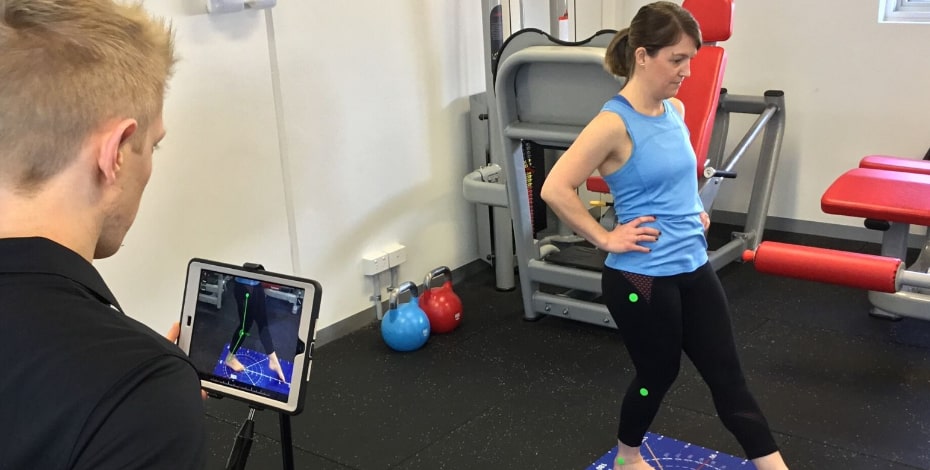
Technology is king in private practice

The post-COVID-19 private practice will look considerably different for many clinics, and technology will have an evolving role in the practice of the future. This month, Stephen King joins the APA in presenting a webinar on how to embrace the technological changes for a better client outcome.
When Stephen King and his business partner Andrew Lemon opened their suburban Melbourne physiotherapy practice in 2016, a key foundation of the clinic’s operation was the uptake of technology.
The choices the pair made were carefully planned and deliberate—the technology had to deliver on telehealth and video consultations as well as manage the entire client experience remotely due to overseas travel commitments with their education company.
As a self-confessed early adopter of new technology, Stephen wanted to take advantage of the tools available in the marketplace to step in from the moment a client first made contact right through to the rehabilitation or management process stage.
‘I have always been that person who is the early adopter and tries out the latest gadgets and technology,’ Stephen says.
‘I like to experiment and change. I have a very keen interest in technology that drives meaningful change. But when I joined the allied health profession, I realised there wasn’t a lot of technology available.
'I felt there was a lot of guess work in what we were doing.
'So that’s where my interest started in regards to using technology to analyse and run the business, but also in helping to provide a great customer experience and get great outcomes for the people we work with.’
Stephen identified five key areas where technology can play a crucial role in the running of a private practice. They are:
- pre-appointment/onboarding
- history-taking process
- education process
- assessment
- rehabilitation/management process.
‘At each of those stages you can utilise technology to help you get more information and gather data to help you make better decisions and speed up some of your processes as well,’ Stephen says.
‘You don’t have to focus on the non-core physiotherapy stuff, utilising technology frees you to concentrate on getting that great outcome in the session with your patient.’
When COVID-19 hit, it was barely a bump in the road for operations and provided some exciting opportunities.
Although having to spend more time in educating the public about the benefits of physiotherapy via telehealth and video conferencing during COVID-19 restrictions in Melbourne, Stephen says the technology and systems already in place at the practice meant for a much smoother transition.
‘I think traditionally the profession has been slow in the uptake of technology; however, I think the changes we’ve seen in the last six months, causing many to have to adapt and evolve, I think that is going to be really beneficial for the profession,’ Stephen says.
'Those who don’t evolve will struggle in the future.
‘But by utilising this technology, I think for the whole profession it is really going to advance us over the next five to 10 years. I see some exciting times ahead.
‘I think it will be the best thing to happen to the profession to be honest. Everyone will work differently, it will be very interesting to see physiotherapy move into the 21st century.’
This month APA Business Group members can access a business online webinar by Stephen King for free, as part of their group membership benefits.
The live webinar, entitled ‘Stop guessing, start measuring: improving patient outcomes utilising data and technology’, will screen on Tuesday, 27 October from 7. 30 pm to 8.30 pm.
The event will cover some of the key apps and technology that physiotherapists can use to get better results with patients and clients.
Stephen says the webinar is aimed at private practitioners and business owners or those looking at potentially starting their own private practice.
He says the webinar will demonstrate ways that attendees can create points of difference for themselves in the marketplace as well as potentially get better outcomes for their patients and clients.
‘Hopefully they can take away some quick, simple and easy tips to implement into each stage of the patient management process,’ Stephen says.
‘I will discuss some new bits of technology that are really accessible now, that they can potentially look to integrate, and share some ideas about some things they can go away and start to implement in their clinics the very next day.’
One of the barriers to the uptake of new technologies, Stephen says, is that many practitioners simply don’t know what different technology is available to assist all the different steps of the journey, or what that technology is capable of helping with.
Another potential barrier is the perception that introducing new technology is a time-consuming effort for little reward. This doesn’t need to be the case.
‘I think traditionally physiotherapists and healthcare professionals are quite conservative in nature.
'There are still clinics that run on paper appointments and clinical notes,’ Stephen says.
‘I believe that technology actually gives you back time. If you invest the time to set up the processes then you reap the rewards for the years to come.’
>> Registration for the live webinar close on Monday, 26 October. Registration is free for APA Business Group members, $50 for non-members and $30 for other APA members. Go to australian.physio/pd for more details.
© Copyright 2024 by Australian Physiotherapy Association. All rights reserved.





